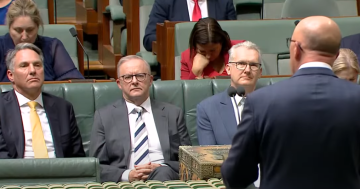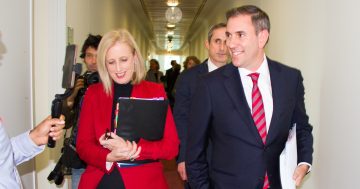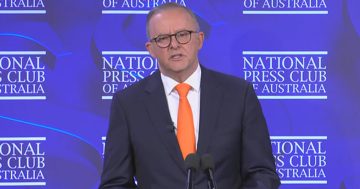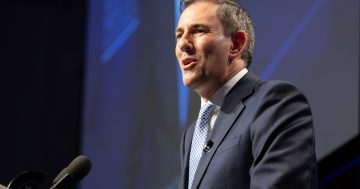Michael Pascoe* relates how he spent his time in pandemic lockdown reducing bills on insurance, utilities and his mortgage.
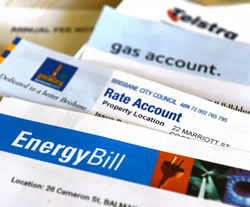 Something good had to come out of the COVID-19 lockdown period — I stopped paying the ‘lazy tax’, and about bloody time, too.
Something good had to come out of the COVID-19 lockdown period — I stopped paying the ‘lazy tax’, and about bloody time, too.
I was unnecessarily forking out extra money on home and contents insurance, car insurance, gas and electricity and a mortgage.
Several years ago I started calling that extra money the lazy tax.
Most of us hand it over because we’re too lazy to shop around.
It’s a little embarrassing to admit, but it was a case of “do as I say, not as I do”.
Oh, I had done comparisons, I thought I was staying in touch with the various rates, thought the bills were fair enough.
I had checked that the price was right when we moved house five years ago.
It turned out I was paying lazy tax on every one of them.
Some readers think calling it the lazy tax is unfair as there are people who simply can’t cope with the complexity or have found themselves locked into a bank loan by other arrangements.
For most of us though — and certainly me — it’s a matter of “it’s all too hard to bother”.
The lesson is that you can’t shop around once, get the best deal, then set and forget.
For example, if you check, you are likely to find your home and contents insurance premium has been steadily creeping up each year.
I don’t blame the insurance company, under-insurance is a feature of Australian life and they are trying to make a living.
However, after five years, I found I was paying nearly $1,000 a year more than the cost of a better policy from another reputable insurer.
Part of the $1,000 difference was thanks to a multi-policy discount for the car insurance I already had with the company.
I checked that anyway and found there’s a further discount if my compulsory third-party insurance also is with the company — and the rego happens to be due next month.
There’s also no such thing as simple insurance.
Working out how much you need, what level of excess makes the most sense for your circumstances and what ‘extras’ might be worth paying for is not easy.
It all depends on the individual.
Making the effort to understand the product has two payoffs: Potentially save money on the premium by not paying for what you don’t need.
More importantly, you should end up with the right insurance should you ever need to claim on it.
Then there were the gas and electricity bills.
I compared rates when we moved house and signed up for the best deal.
Thanks to the Government’s Energy Made Easy website it was now much easier to check if that was still the case — it was not.
The neat thing about Energy Made Easy is that the site does the hard work for you.
Energy and gas bills seem designed to be difficult to understand.
You can upload copies of your energy bills on the Energy Made Easy site and someone else’s computer works out what the best deals are for your energy use.
For me, that was a company called Globird Energy.
I believe in giving the existing supplier a chance, so I rang Origin and asked if they could better Globird’s offer — they couldn’t equal it, let alone better it.
Unlike changing your mortgage, changing your gas and electricity supplier is wonderfully easy with a phone call or two.
Surprise, surprise, the day after I told Globird to go ahead and take me over, Origin phoned with a better offer.
In a different mood, I might have told them they were too late to the party, but a couple of hundred dollars is a couple of hundred dollars.
Thanks anyway, Globird, may some benefit flow from the promotion you’ve just had here.
Then there’s the mortgage. Over the years, this has been the most costly lazy tax for Australians.
In 2017, Reserve Bank analysis showed the difference between what existing bank mortgage customers pay and the rates offered to new customers was about $5 billion a year.
Using one of the bank’s mortgage calculators, the difference of a quarter of a percentage point — a loan at 2.75 instead of three per cent — is $24,000 on a $500,000 mortgage over 30 years.
Even a 15 point difference is worth $14,223.
The joke is that for many years, most customers with a good credit rating could get a decent rate reduction just by asking, or at least threatening to go elsewhere.
Most people didn’t bother to ask.
We’re getting much better at it as the word has spread around and the various comparison sites have made the cheap rates on offer more obvious.
One of the smaller banks offered an investment mortgage rate 0.64 per cent cheaper than my existing bank.
Given the chance to equal the rate, my existing bank was still 30 points dearer.
Goodbye existing bank.
Yes, there is much more paperwork involved in changing banks than electricity suppliers, but there also tends to be much more money to be saved.
It takes some time, but if your hourly rate is higher than what you can save by avoiding the lazy tax, you are doing very nicely indeed.
*Michael Pascoe is a contributing editor at the New Daily.
This article first appeared on the New Daily website.


